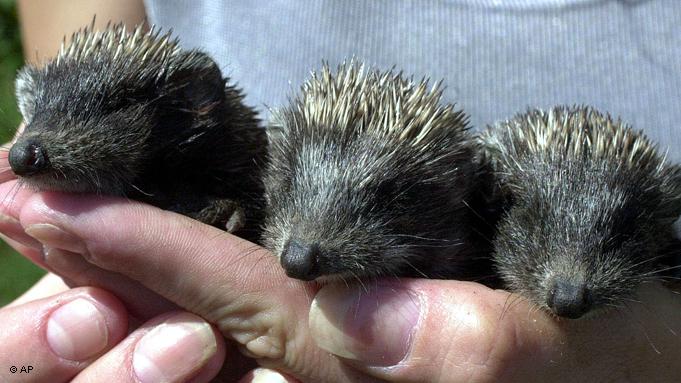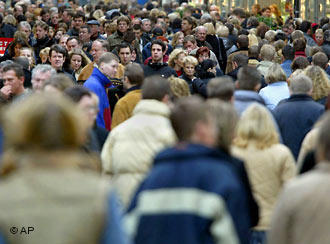Search Results for Tag: population
Jane Goodall: 300 days on the road for the cause
Meeting Jane Goodall, British primatologist and avid environmental activist, is an honour. Global Ideas took the opportunity to talk with the world’s foremost expert on chimpanzees during a film screening in Brussels. The documentary Love MEATender focuses on earth’s growing hunger for more meat and the price we already have to pay for the excessive consumption.
A lot of people are already aware of the situation we are in, Goodall says. But that does not automaticly change something:
GI Jane Goodall What has to be done from DW_Global Ideas on Vimeo.
One of today’s main problems is that earth’s population is growing fast and with it the number of people who want to consume meat, Goodall adds. As the middle classes in the developing world are rising up, they want to have the same standards of living as the industrialized countries have. “Which is of course understandable.” But the planet is not growing, so it won’t be able to support this lifestyle much longer.
GI Jane Goodall more meat more problem from DW_Global Ideas on Vimeo.
For Jan Goodall the newest generations are the key to a solution. Her organization, the Jane Goodall Institute, runs an initiative called “Roots and Shoots program,” with the goal to “provide young people with the knowledge, tools and inspiration to improve the environment and the quality of life for people and animals,” as the program’s website says. “We need to train a new generation to be better stewards than we have been,” she adds. Otherwise there would be absolutly no point:
GI Jane Goodall important young people from DW_Global Ideas on Vimeo.
Hedgehogs could give climate clues

Hedgehogs don’t get much attention – they’re small, prickly animals that are awake at night and like to feed on insects. But their seasonal habits are gaining interest among scientists everywhere as a possible insight into climate change. Why?
Hedgehogs hibernate in the winter and usually emerge back into the world in March. But scientists say if the little creatures come out earlier or later, it could be an indicator of climate change. And on top of that, the number of hedgehogs has been declining quickly. Research reports show the population has plummeted from around 30 million in the 1950’s to just 1.5 million in 1995.
That’s why a few wildlife charities in the UK – including the The People’s Trust for Endangered Species and the British Hedgehog Preservation Society – want a special study to be conducted that would look into both the population decline and the hibernation patterns of hedgehogs. They say that a previous study published in the 1970’s established a direct link between hedgehog hibernation and climate change patterns.
7 billion, and counting
There are now more than 7 billion people living on our planet! It’s a reason to celebrate and a stark reminder of how many people live and depend on the planet’s resources. Human population looks like it will continue to grow at breakneck speed, and that means it’s vital we make sure the earth can meet the needs of all 7, 8 or even 9 billion people – when we get to that point.
Climate change poses the biggest threat to meeting the basic food supply needed to nourish the world. Severe weather, changing rain trends and other turnarounds in global climate patterns have put important basic crops at risk – from wheat and corn to coffee. As the supply falls, the prices for food soar, making it too expensive for many in the world’s developing countries.
On top of that, more people means more energy use, and the need for clean, eco-friendly energy on a wide scale will become even more crucial in the coming years. So you’re now one of more than 7 billion people on the planet. What can every person do to keep the world safe?





Feedback